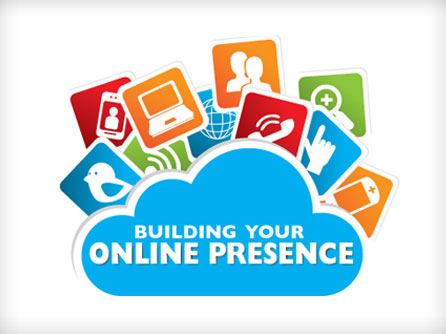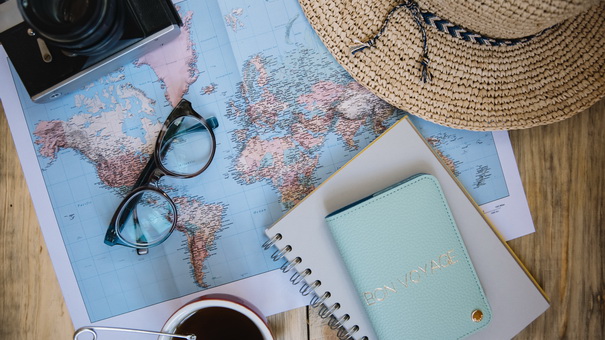
Imagine sipping coffee in a cozy café in Bali, working on your latest freelance project, and then wrapping up your day with a walk on the beach. Sounds like a dream, right? Welcome to the life of a digital nomad—a lifestyle that combines the freedom of travel with the flexibility of working remotely. This lifestyle has become increasingly popular, thanks to the rise of freelancing platforms and remote work opportunities.
But being a digital nomad isn’t all sun and surf. To make this lifestyle sustainable, you need to be strategic about how you work, manage your time, and find clients. In this in-depth guide, we’ll explore practical freelancing tips to help you earn a stable income while traveling the world.
What is a Digital Nomad?
A digital nomad is someone who leverages technology to work remotely and can live and travel in different parts of the world. Freelancing is one of the most popular ways for digital nomads to earn a living, as it provides the flexibility needed to work from anywhere with an internet connection. Whether you’re a freelance writer, graphic designer, developer, or consultant, freelancing enables you to take control of your work and travel lifestyle.
Key Freelancing Tips for Digital Nomads
1. Choose the Right Freelance Niche

When you’re constantly on the move, your work should be location-independent. Certain freelance niches naturally align with the digital nomad lifestyle, such as:
- Writing and Content Creation: From blog writing to SEO content creation, writing is a highly flexible and location-independent freelance niche.
- Graphic Design: With just a laptop and design software, you can work on projects from anywhere.
- Web Development: Many digital nomads make a great living building websites or apps for clients across the globe.
- Social Media Management: Managing social media accounts for businesses is an ideal remote job as long as you can stay connected.
Choosing the right niche will allow you to work efficiently while on the move, without being tied to a specific location or time zone.
2. Build a Strong Online Presence

As a digital nomad, your online presence is your business card. Make sure you have:
- A Portfolio Website: Create a professional website showcasing your skills, portfolio, and services. Platforms like WordPress, Squarespace, or Wix make it easy to build a stunning website even if you’re not tech-savvy.
- Active Profiles on Freelance Platforms: Marketplaces like Upwork, Toptal, and Freelancer are essential to landing clients when you’re on the move. Also, niche platforms like Behance (for designers) or ProBlogger (for writers) can help you find targeted freelance work.
- Social Media Visibility: Use LinkedIn, Twitter, and Instagram to network, share your work, and connect with potential clients. Building relationships through social media can lead to long-term freelance contracts.
3. Develop Good Communication Habits

As a digital nomad, you’ll often work with clients in different time zones. This can be challenging, but it’s manageable with effective communication practices:
- Set Clear Expectations: From the outset, let clients know your working hours and availability. Use time zone tools like World Time Buddy to ensure you’re on the same page.
- Use Project Management Tools: Tools like Asana, Trello, or Slack make it easy to stay in touch with clients and manage your workflow. You can track tasks, deadlines, and updates, even when you’re traveling.
- Regular Check-Ins: Make it a habit to check in with your clients frequently. Let them know how the project is progressing, and make sure you’re always available for feedback.
4. Master Time Management

When you’re traveling the world, it’s easy to get distracted by the sights and sounds of new places. That’s why time management is essential to staying productive.
- Set a Work Schedule: Even though you have flexibility, establish a daily routine that allows for work and play. For example, dedicate your mornings to work, and use the afternoons for exploring.
- Batch Your Work: Group similar tasks together to work more efficiently. For instance, you can batch all your content creation work in the morning and save client meetings or emails for the afternoon.
- Use Time Management Apps: Apps like Toggl or RescueTime can help track how you’re spending your hours and ensure you’re staying productive.
5. Stay Connected with Reliable Tech Tools

You won’t always have access to stable Wi-Fi or power when you’re constantly on the move, so invest in the right tech tools to ensure seamless work.
- Portable Wi-Fi Device: A portable Wi-Fi router or hotspot ensures you always have internet access, even in remote locations.
- Cloud Storage: Use cloud services like Google Drive, Dropbox, or OneDrive to store your files securely and access them from any device. This way, you won’t have to worry about data loss.
- Power Banks: Always carry a power bank for your laptop or mobile devices, especially when you’re in transit or working from outdoor spaces.
6. Diversify Your Income Streams

Freelancing is great, but to truly thrive as a digital nomad, you should consider diversifying your income streams. This provides financial security and helps you withstand the feast-and-famine cycles common in freelancing.
- Offer Online Courses or E-books: If you’re an expert in your field, consider creating online courses or e-books. Platforms like Teachable or Udemy allow you to sell courses, while Amazon Kindle or Gumroad can help you publish and sell e-books.
- Affiliate Marketing: Promote relevant products or services through affiliate marketing. If you have a blog or a website, you can monetize it by recommending tools or services you use and earn a commission for each sale.
- Passive Income Projects: Work on projects that generate passive income, such as building a blog that earns through ads or selling digital products like design templates or stock photos.
7. Establish Legal and Financial Stability

While the digital nomad lifestyle offers freedom, you still need to take care of the legal and financial aspects to make it sustainable.
- Tax Compliance: Research the tax laws of your home country and the countries you plan to visit. Some countries have favorable tax laws for digital nomads, and others may require you to file local taxes. Consider consulting with a tax professional who understands nomadic lifestyles.
- Health and Travel Insurance: Invest in health and travel insurance that covers both medical emergencies and work-related travel. Some companies, like SafetyWing or World Nomads, offer insurance tailored to digital nomads.
- Set Up an Emergency Fund: Traveling comes with unexpected expenses, from flight delays to equipment failure. Set aside an emergency fund to cover any unforeseen costs while you’re abroad.
8. Pick Your Destination Wisely

Not all countries are digital-nomad-friendly. You need to consider factors like the cost of living, quality of internet, safety, and visa requirements. Here are some popular digital nomad destinations:
- Bali, Indonesia: Known for its low cost of living, excellent co-working spaces, and vibrant expat community.
- Chiang Mai, Thailand: Offers a balance of affordability, reliable internet, and beautiful scenery, making it a popular hub for digital nomads.
- Portugal: Specifically, Lisbon and Porto are emerging as digital nomad hot spots, thanks to their sunny weather, affordable lifestyle, and great workspaces.
- Mexico City, Mexico: A bustling, culture-rich city with an affordable cost of living and a growing digital nomad scene.
- Tbilisi, Georgia: With its welcoming visa policies for freelancers and affordable cost of living, Georgia is gaining popularity among nomads.
9. Join Digital Nomad Communities

One of the biggest challenges for digital nomads is feeling isolated while traveling. To combat this, join digital nomad communities, both online and in person.
- Co-working Spaces: Co-working spaces like WeWork or Techspace not only provide reliable internet but also offer a chance to meet other digital nomads. These spaces often host networking events or workshops that can help you grow your business.
- Online Communities: Platforms like Nomad List or Facebook groups such as “Digital Nomads Around the World” are excellent for connecting with fellow nomads, sharing tips, and finding opportunities to collaborate.
The digital nomad lifestyle offers unparalleled freedom, but it requires discipline, strategic planning, and the right tools to make it sustainable. By choosing the right freelance niche, building a strong online presence, managing your time effectively, and diversifying your income streams, you can create a thriving freelancing career while exploring the world. Remember, freelancing as a digital nomad is about balance—enjoy the freedom of travel but remain committed to your work to keep the lifestyle going.
Kamran tariq
With the right mindset and approach, the world truly becomes your office. So, pack your bags, grab your laptop, and start living the life you’ve always dreamed of as a successful digital nomad!


Leave a Reply